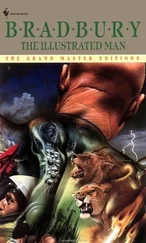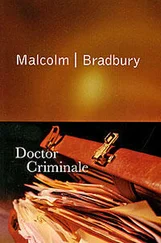Malcolm Bradbury - The History Man
Здесь есть возможность читать онлайн «Malcolm Bradbury - The History Man» весь текст электронной книги совершенно бесплатно (целиком полную версию без сокращений). В некоторых случаях можно слушать аудио, скачать через торрент в формате fb2 и присутствует краткое содержание. Жанр: Современная проза, на английском языке. Описание произведения, (предисловие) а так же отзывы посетителей доступны на портале библиотеки ЛибКат.
- Название:The History Man
- Автор:
- Жанр:
- Год:неизвестен
- ISBN:нет данных
- Рейтинг книги:3 / 5. Голосов: 1
-
Избранное:Добавить в избранное
- Отзывы:
-
Ваша оценка:
- 60
- 1
- 2
- 3
- 4
- 5
The History Man: краткое содержание, описание и аннотация
Предлагаем к чтению аннотацию, описание, краткое содержание или предисловие (зависит от того, что написал сам автор книги «The History Man»). Если вы не нашли необходимую информацию о книге — напишите в комментариях, мы постараемся отыскать её.
The History Man — читать онлайн бесплатно полную книгу (весь текст) целиком
Ниже представлен текст книги, разбитый по страницам. Система сохранения места последней прочитанной страницы, позволяет с удобством читать онлайн бесплатно книгу «The History Man», без необходимости каждый раз заново искать на чём Вы остановились. Поставьте закладку, и сможете в любой момент перейти на страницу, на которой закончили чтение.
Интервал:
Закладка:
'I'm not interested in him,' says Howard, 'I'm interested in you. I have been all along.'
'I don't want you to be,' says Miss Callendar. 'Is that your bedroom in there?' asks Howard. 'Why?' asks Miss Callendar, lifting a sad, crying face. 'Come in there with me,' says Howard. 'I don't want to,' says Miss Callendar. 'It's all right,' says Howard. 'He's not there. He's gone to see the Vice-Chancellor.'
'I don't want it,' says Miss Callendar. 'Another Miss Phee, getting the help.'
'Oh, you're more than that,' says Howard. 'Not a sub-plot,' says Miss Callendar. 'The thing it's all been about,' says Howard. 'Come on.'
He puts his hand on her arm. Miss Callendar turns, her dark head down. 'Yes,' says Howard. Miss Callendar moves toward the brown-stained bedroom door; she pushes it open and walks into the room. It is a small room, with, against one wall, a very large wardrobe; the bed is bulky and high, and has a wooden head and foot. On it is a patchwork quilt; Miss Callendar straightens it. Outside the window is a little garden, on the slope; Miss Callendar goes to this window, and pulls across the heavy plush curtains. The room now is nearly dark. Still standing by the curtains, away from him on the other side of the bed, she begins, clumsily, to remove the trouser suit; he hears the whisper of cloth as she takes things off. 'Can I put the light on?' asks Howard. 'No, don't, you mustn't,' says Miss Callendar. The clothes fall off onto the floor; her body is white in the faint light. She moves from her place; the bed creaks; she is lying on top of the quilt. His own clothes are around his feet. He climbs onto the bed, and touches with his hand the very faintly roughened softness of her skin. He feels the coldness of his hand on her, and a little pulling shudder, a revulsion, in the flesh. His hand has found the centre of her body, the navel; he slides it upward, to her small round breast, and then down, to her thighs. He feels the springs of response, tiny springs; the stir of the nipple, the warmth of the mucus. But she scarcely moves; she neglects to feel what she feels. 'Have you done this before?' he whispers. 'Hardly ever,' she whispers. 'You don't like it,' he says. 'Aren't you here to make me?' she asks. He kneads and presses her body. He lies over her, against her breast, and can feel the rapid knocking of her heart. In the dark he moves and feels the busy, energetic flesh of himself wriggling into her, like a formless proliferating thing, hot and growing and spreading. Unmitigated, inhuman, it explodes; the sweat of flesh, of two fleshes, is in the air of the dark room; their bodies break away from each other.
Miss Callendar lies with her face away from him; he can smell the scent of her healthy shampoo close to his face. 'I shouldn't have let you, it's wrong,' she whispers. 'It's not wrong,' he says. How can he have thought her quite old, when he met her first? Her body against him feels very, very young. He whispers, as to a child, 'Promise me you'll not think about him again, act for him again.' Miss Callendar keeps her head turned away; she says, 'That's what it was for.'
'It's for your good,' says Howard. 'Those things you said,' says Miss Callendar. 'What about them?' asks Howard. 'You said them just to get inside me.'
'I think you'd have let me, in any case,' says Howard. 'It was bound to happen.'
'Historical inevitability,' says Miss Callendar. 'There was an ending. I was it.'
'That's right,' says Howard. 'Marx arranged it.' After a moment, Miss Callendar turns her head; she says, 'Marx said history is bunk.'
'That was Henry Ford,' says Howard. 'No, Marx,' says Miss Callendar. 'Oh, yes?' asks Howard, 'where?'
'A late insight,' says Miss Callendar, turning her body over to face him. 'It's my field,' says Howard. 'Blake for you, and Marx for me.'
'I'm right,' says Miss Callendar, 'it's a critical ambiguity.'
'If you want,' says Howard. 'Was I awful at it?' asks Miss Callendar. 'It's like golf, you need plenty of practice,' says Howard. 'We can arrange it.'
'You're so busy,' says Miss Callendar, 'and George will be on duty again.'
'Oh, I don't think so,' says Howard, 'I think we can deal with him.'
XIII
And now it is the winter again; the people, having come back, are going away again. The autumn, in which the passions rise, the tensions mount, the strikes accumulate, the newspapers fill with disaster, is over. Christmas is coming; the goose is getting fat, and the papers getting thin; things are stopping happening. In the drives the cars are being packed, and the people are ready, in relief, to be off, to Positano or the Public Record Office, Moscow or mother, for the lapse of the festive season. There are coloured lights along the promenade, now on, now of, according to the rhythm of the power strikes; Nixon is back in office for a second term, and there is talk of seasonal truce in Ulster. Mock fir trees decked with empty tinsel packages stand in the pedestrian precincts where the shoppers crowd and generate minor economic boom among consumables; there are train crashes and plane crashes, as there always seem to be over this season. Snow flurries over the sea; people assume cheeriness; telephones ring to transmit Yuletide compliments. The Kirks, that well-known couple, catch the mood and decide to have a party. They have, actually, had a party at this point in time, the end of the autumn term, the first term of the year up at the new university spreading on the hill, for the past two winters. But it is hardly a tradition with them, and can hardly be, for who can predict ahead of time the strifes and dissentions, the fallings out and the fallings in, that will come upon a group of intelligent people like this when they get together to generate the onward march of mind, the onward process of history. In any case the Kirks are, of course, enormously busy people, with two full lives, and two separate diaries; they are not in the house together very much; there is little space for planning and conversation, with so much in the world to do. But as it happens they do find themselves in the house together, in that last week of term; and though the strife has been considerable, the term wearing, and their own relationship uncertain, for when one is up the other is down, yet some atavistic instinct manages to seize them. They look at each other, with natural suspicion; they examine the mood and the milieu; they say, but not very certainly, 'Yes.' And then they fetch the common household diary-Howard had fetched it last time, so Barbara fetches ' it this-and they sit down together with it, in the pine kitchen, and inspect the busy pages. There is a free date that suits them both quite equally, and does not affect their separate plans. They seize it; the date is Friday 15 December, the last day of the term.
After the instinct about the party has come to them, an instinct so tentative and uncertain that neither is quite sure whom to blame for it, the Kirks go together into their livingroom and pour themselves out a glass of beer each, and they begin to plan it. It is a small inspection of their present relationships; and it becomes quickly clear that it will be a thinner, smaller party than their last one, held at the beginning of this same term, when the prospects were pleasing and the future full of options. For wear and tear have overtaken the Kirks, and their friendships, and their friends. There have been splits and dissensions, and changes of partner and changes of alliance; new divorces pend, new political associations burgeon. He no longer speaks to her; they no longer speak to them; it is not easy to plan a party, unless one is very au courant with movement and mood, but the Kirks have a way of being that, and they build up their list accordingly. There are people who, it can be taken, will not now come when summoned by the Kirks; there are people the Kirks will not now summon under any circumstances. The people are already in the process of leaving, for the final week of term is a reading week, and many students have surreptitiously disappeared, and some faculty; there are many with other commitments, caucuses, or affairs. There will be, therefore, no ministrations from Flora Beniform, for she has been absent for the last three weeks; fieldwork in West Bromwich, where there has been a significant outbreak of troilism, has called her away. There will be no Roger Fundy, for he is committed in London that day, appearing before magistrates on a charge of assaulting the police, a consequence of a recent Grosvenor Square demonstration against Cambodian policy. There will be no Leon, for Leon is touring with Much Ado About Nothing in Australia, and no avant-gardists from the local theatre, for the cast of Puss in Boots is not Kirk company. But there are others, a bouncing if battered crew of survivors, for the radical cause at Watermouth this term has had its victories, and there is every reason to appear in good humour. So the wind beats on the windows, and the night comes in fast; the lights flicker in the broken houses across the streets; the Kirks sit in their corduroy Habitat chairs, and name names and plan delights; the party takes on its modest shape.
Читать дальшеИнтервал:
Закладка:
Похожие книги на «The History Man»
Представляем Вашему вниманию похожие книги на «The History Man» списком для выбора. Мы отобрали схожую по названию и смыслу литературу в надежде предоставить читателям больше вариантов отыскать новые, интересные, ещё непрочитанные произведения.
Обсуждение, отзывы о книге «The History Man» и просто собственные мнения читателей. Оставьте ваши комментарии, напишите, что Вы думаете о произведении, его смысле или главных героях. Укажите что конкретно понравилось, а что нет, и почему Вы так считаете.











